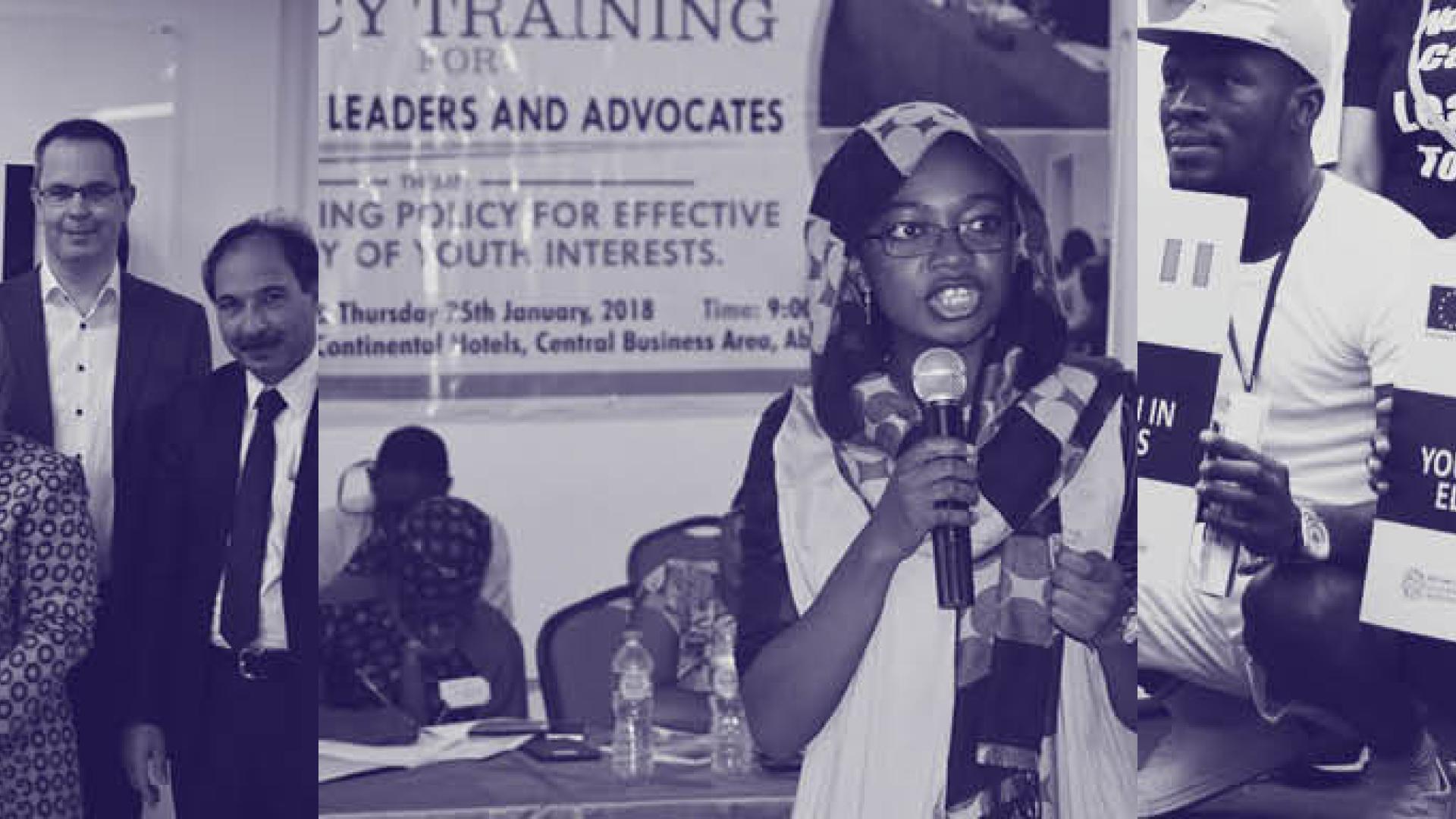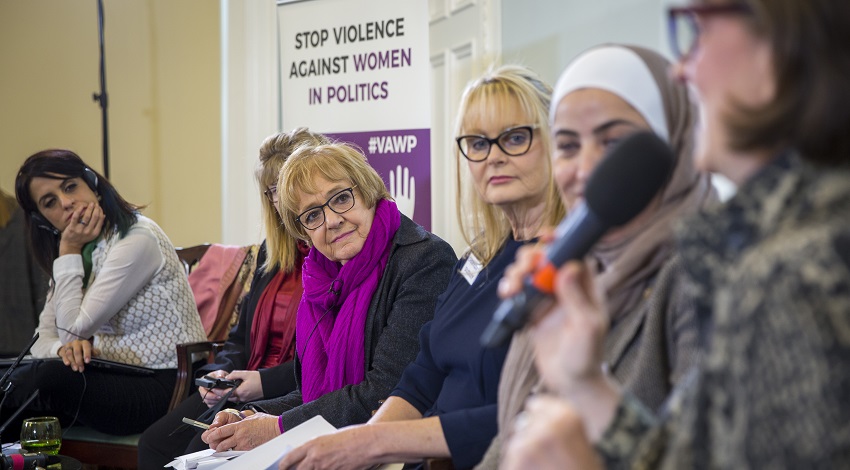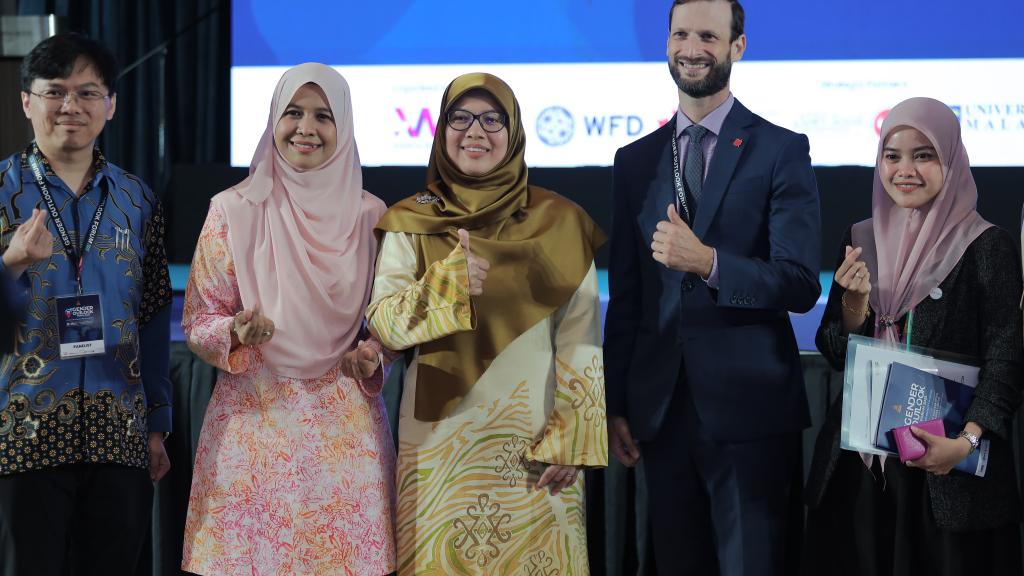WFD welcomes UN report on ending violence against women in politics

The report offers valuable guidance and actions member states, their parliaments, political parties and electoral oversight bodies can and should take to address violence against women in politics.
WFD’s Chief Executive Anthony Smith noted:
“Globally, women pay a higher price for their participation in politics. WFD’s own work to address violence against women in politics has shown that while the forms of abuse targeting politically-active women tend to be localised, the experience is universal.”
“This is an issue that requires urgent action and attention. As the Special Rapporteur’s report notes, the practices and behaviours that facilitate violence, intimidation and harassment in politics contribute to a poorer quality of governance, public life and political participation for all of society, not just for the women who are subjected to them.”
In March 2018, the political party offices of WFD convened an international conference to identify sources of violence against women’s political activity, including global similarities and localised differences, and to construct recommendations and build consensus around practical measures that can be taken to address these. Findings and recommendations from this conference were submitted to the UN Special Rapporteur for consideration in her report.
In the Special Rapporteur’s report, parliaments are called upon to adopt and implement legislation prohibiting and criminalising violence against women in politics, including abuse that is perpetuated online. The report recommends strengthening enforcement through more robust compliance mechanisms and response protocols, as well as increasing the capacity of law enforcement bodies to respond effectively to incidents of abuse, including online violence.

Online abuse, harassment, bullying and threats are an area of growing concern for politically-active women. Discussion of social media platforms dominated WFD’s March conference. Many contributors felt that social media platforms are facilitating growing levels of psychological violence as well as physical and sexualised threats, and that the problem requires a regulatory response.
In the Special Rapporteur’s report, parliaments and other state bodies are also encouraged to examine their internal regulations and organisational culture to ensure that women can contribute to politics and governance in working environments that are free from gender-based violence, including harassment and intimidation. WFD supports the report’s recommendation that part of achieving this outcome involves strengthening the legislative basis for gender parity in all branches and at all levels of government.
The report also recognises that political parties have a pivotal role to play in both advancing women’s political leadership, actively removing barriers to their full participation and ensuring that politics is a safe space. The report calls on political parties to take action in these areas through codes of conduct, policies and practices that establish and enforce zero-tolerance for perpetrators of any form of violence against women.
Recommendations from WFD’s March conference went a step further and called on political parties to mitigate the costs of elections for women, which many contributors characterised as excessively prohibitive and well beyond the financial means of most women. As such, they serve as barriers that obstruct women’s ability and right to fully engage in electoral competition. This is reinforced by WFD’s research on the Cost of Politics, which has outlined the adverse effects on parliamentary democracy – and to the participation of women and young people in particular – when the financial costs of politics and elections exceed the means of most citizens.
Additionally, threats and acts of violence are significantly more pronounced when directed toward women from ethnic minority communities and those facing discrimination linked to factors such as disability, age, sexual orientation, religion, gender reassignment, education or income. As suggested in the Special Rapporteur’s report, regulations to address abuse must consider the needs and situation of women targeted because of these characteristics.
Shannon O’Connell, WFD’s Senior Advisor for Gender, Inclusion and Politics stated:
“WFD looks forward to continuing to work with and support the Special Rapporteur’s efforts in this area. Addressing practices, behaviours and norms that facilitate violence against women in politics offer parliaments, political parties and all governing bodies an important opportunity to identify areas where they can improve their own organisations and offer citizens a better quality of politics. This type of transformation can only happen with women’s full and equal involvement in politics.”
WFD will also continue its own efforts to address violence against women in politics through its global work with political parties on developing more democratic policies and practices; supporting parliaments to oversee the passage and implementation of legislation to prevent and prosecute violence against women; and ensuring women have an equal role in decision-making.



